
Silence is Broken
Note: 2nd person pronouns are used in the place of 1st person pronouns to reflect the hive mind (a.i. We instead of I, us instead of me, they instead of you)
As we walked up the presentation podium, we felt nothing but fear. We took a pause to once again look over the crowd of thousands gathered to hear the speeches presented by the public. The Forum of the Hive was a major event, with many well-known members of the hive making speeches every moon. We, however, are an unknown. We have yet to make a mark on changeling society.
We continued on our trip up the stage. All the other presenters had already gone, leaving us the only one left. We did not think that we could contend with the speeches of our sisters, for some of them had been exceptional, but we were not about to back away from this. There was no turning back. Before long, we made it up to the podium, and in response, the crowd quieted down, bringing us out of our private thoughts. We thought that we were going to faint onstage, and yet, something came over us. We felt our pulse begin to slow down, and our body ceased in its shaking. We felt no fear as we faced the assembled crowd of thousands, knowing that what we were about to do was right.
The words came from our own mouth, though they did not seem to be our own. “Greetings, brethren. We are here today to talk about an important issue to the collective. We are here to talk about the equines.”
A smattering of whispers echoed through our audience. This was reasonable, for they must be wondering why we had brought up the slave race. We let the sound die down by itself, and within moments, it did. “It has been hundreds of years since the date of Empress Chrysalis’ triumphant victory over the Equine rulers known as Celestia and Luna. Ever since that exalted day, peace and prosperity have been experienced for generations. It was on that day that the race of equines became our slaves.”
We heard a low mutter go through the crowd at the mention of the pony race. We knew that we would have to stay on track if we were to keep their attention. For the first time, we felt ourselves falter. What if the hive did not support our opinion? What if this would be viewed as treason? The punishment for all crimes in the hive is permanent banishment. We would be forced to wander the world alone, and just the thought of being alone for any extended period of time made us shudder.
We forced ourselves to regain our composure, knowing we had gone too far to turn back now. “Yes, the Equines; The race that has been in our servitude since that fateful day. They are much different than the hive, and are revolting on all levels. They flaunt soft, brightly colored coats, showing how little hardship they have endured, and how weak they are. They do not live in a collective, and are allowed to do as they please with their lives. They lack unity, the trait from which all strength comes. All of their females have offspring, and all of their males father children, no matter how weak or inept they may be. And last and most importantly, they form irrational emotional connections that could be broken at any moment, leaving them emotionally damaged.”
The crowd had once again quieted down. We had regained their attention after our blunder. But now the most difficult part was to come, and we had no clue how they would react. We began to pant as we became nervous and our body warmed up in response. If there was one thing we admired about ponies it was their ability to sweat. It is a much more effective system, the only tradeoff being that awful smell.
“Yes, there are many differences between the changeling and equine races. It was these differences – these weaknesses – that Empress Chrysalis exploited in her brilliant takeover. Their misplaced faith in love was their downfall; their trusting nature their end. And yet, they have a few admirable qualities. They have the determination and intelligence that make them effective for slave labor. They have the ability to carry disproportionally large amounts of weight on their backs. Their flying and magical abilities are nearly a match for our own. Some of them were exceptional in these abilities, and so they were disposed of before they could cause complications.”
We cleared our throat and took a pause. We could tell that we were delaying the inevitable. We took a second to bring ourselves on track, looking upon the audience. We smiled at this, for we could see their thoughts from their faces. They could not deny the truth in what we were saying. There was a chance that we could reach them.
“Our original reason for the takeover of Equestria was simple: we needed love to sustain ourselves. But soon after conquering the realm, we decided that the equines could also be used for slave labor. There were mass revolts on the part of the equines, but as our power grew over the years, their resistance diminished. As we continued to grow stronger, we found a way to escape our addiction love as a food, and before long, we had completely outgrown dependency. And yet, the equines remain our slaves. But why is this? With our population, we no longer need them for labor. We have hundreds of thousands of dormant drones that sit in hibernation because there is no purpose for them.”
“And it is more than just that. If there is one thing the equines do not understand about us, it is that we are an intelligent race, not barbaric, nor savage. But if we claim to be enlightened, then how can we practice such oppression when there is no need for it? Now that we have the ability to shed this archaic practice, why don’t we? This is our appeal to Empress Variant, 6th queen of our glorious hive. We ask that we free the equines; not because we must, but because we as a race are not so terrible that we would prolong the suffering of another race. For no matter how strange and flawed the Equines may be, it is our obligation to discontinue their subjugation now that it is no longer necessary.”
The last words we spoke echoed throughout the building, which was utterly silent. Our audience was still trying to absorb what they had just heard. There was no way to tell whether or not any of them agreed with us. The silence stretched on for what seemed like ages, although it couldn’t have been more than a minute. Maybe we truly were mentally ill, as we’d first thought when we realized our opinion. Whether it was this or simply a symptom of stress, we could not tell. At any rate, we were shaking all over, and our panting had given way to hyperventilation. We glanced at the queen, who sat on a balcony in the back of the room, waiting for a response, and hoping for a positive one.
At last we saw her stand up, and she began to address the audience in the chamber. “Members of our great hive, I have been presented an opinion of exceptional boldness. My opinion is unclear, and therefore, I must defer the public. After all, it is you who own the slaves, and you who often work side-by-side with the Equines. Therefore, your opinion is valued on this issue: Are the slaves necessary to maintain our level of prosperity?”
We continued to stand at our podium for this announcement, nervously fidgeting with our script, which we had not even looked at during our speech. But this was for the better, for our speech had been much more dynamic the way we had said it. It was from the heart, and it was right. We know now that our opinion is definitely correct, and that those beings do not deserve to suffer without purpose. We can only hope that the rest of the hive will see it that way. We once again heard the voice of the queen, so we turned our head in that direction.
“Do you wish to say anything more to our brethren before the vote?”
We were shocked. Had the queen just addressed us? It is a rare honor for one to be addressed as an individual by the queen, and was a sign of respect. We gave ourselves time to think of our response, for this was important. But after thinking on it some, we realized a second option, and a much bolder one that befitted our speech. We stood up straight and tried to look confidently at the crowd. “We believe our speech speaks for itself. We do not need to add anything.”
Queen Variant only nodded in response, and from this distance, we thought we could make out a small smile on her face, but we were not sure.
“Members of the hive, may you now stand on the side of the room corresponding to your opinion.” On cue, they did just that. The once motionless crowd became a sea of changeling bodies, and it seemed that everyone was moving. We stepped down from the podium as is custom during voting, for we knew what would happen next. Under the floor is a giant scale. When all members of the hive have chosen their side, the scale determines which side has the majority, and by how many voters. It was a quicker system than most, but its size and complexity spoke to the ego of the hive more than it did to our love of efficiency. It was a well-deserved ego, but an ego none-the-less.
We watched the changelings moving about on the scale. Some were still contemplating their choice, while others seemed confident with the choice they had already made. An overwhelming majority of them were still moving. As efficient as the system was, we understood that it would take some time for them to find their places. There were nearly ten thousand in attendance; a full house. Using the time constructively, we thought about the Queen’s reaction. The fact that she had not immediately sentenced us to banishment was reassuring.
As we continued to watch the crowd, we noticed that for the first time, the scale began to move. The scale was made so that it could never go past a few feet in difference, so each inch was important. And from what we could see, the side supporting our opinion was lowering considerably. We felt a rush of elation bolster our resolve. We stood up straighter, watching as more and more of them came to our side. We saw the platform sink past one foot, and then past two feet. By the time the last stragglers had placed themselves, we had at least three-quarters of the vote in our favor. We beamed at those in the front row, and they responded with supportive nods. Next, we moved our gaze up to Empress Variant, who was now standing up from her throne. She walked to the front of her balcony
“Members of the hive, the correct course of action has become clear to me.” She paused for dramatic effect, and during that pause, we willed her to continue, to utter the words we had been waiting for. “The Equines will from this day forth be freed from servitude.”
The sound of hooves clopping and wings buzzing in applause filled the room. We did not know what to do at first, but eventually, it became clear. The crowd wished for us to speak once again. Full of confidence, we walked over to the podium once again and faced the crowd. At once, their applause quieted, and they waited patiently for what we had to say. We opened our mouth to speak, knowing that this was a new, and better, era.
=-=-=-=-=
As quickly as it had come about, the memory faded, leaving us in a room that was empty save the desk we were sitting at, the chair we were sitting on, and the parchment and quill we were using to write down our experiences. We scanned the last few words we had written to remind ourselves where we had left off:
It has been many days since we delivered our speech, months in fact since that time. We have reflected on what we did many times, or more accurately, why we did it
The text stopped there. The quill, which we had dropped, still sat with its point right next to the final letter. We had been daydreaming, we realized, and had stopped because of this fact. Picking the quill up with a simple spell, we continued writing, for what we wanted to say was still fresh in our minds. As we wrote, we spoke the words aloud.
“Many would say that there is no room for thought on this issue, but we would disagree. Many would say that the reason we did this is clear. That much is true, but not in the way most see it. The popular opinion is that we called for the liberation of the equines so our hibernating sisters could live their lives. Others say we did it because we changelings are more efficient workers than they are. Some say we did it for the economy, for politics, or for Empress Chrysalis herself.”
“But in truth, none of these are the true reason that we did it. It was not for the benefit of the hive, but rather simply because the equines deserve their freedom. It was unjust of us to oppress them for as long as we did. Once we no longer needed them for food, we should have allowed them to go on their way, but instead, we became dependent on their slave labor to live our daily lives. Although we are happy that this practice is being ended, we are at the same time displeased by the reason it is happening. We are doing it for our own benefit, which is wrong.”
“We have spent many of the last months studying equine history and literature. This was not a task assigned to us by our queen, but we did it by our own inclination. Ever since we were charged with the task of organizing the freeing of our equine servants, we have also been in close contact with them, and have seen their reactions to this. From both of these sources, we have come to a conclusion: We were wrong about them. Not only are they not as weak as we portray them to be, but they are strong. We can be quoted in our original speech saying that they show no signs of hardship, and that it makes them feeble, but we now know how false that is. The reason they show no signs of hardship is because they have always triumphed over that hardship, and have never let it affect them.”
“What, then, does that say about our race? We have allowed our bodies to be corrupted with our former troubles, and this reveals a startling truth. Not only are the Equines stronger than we once thought, but they are stronger than our race. We have allowed ourselves to grow weak in our prosperity, while the equines have only grown stronger in spirit.”
“One of the most important things we learned from studying their history is how devoted they are to this land. Before our invasion, it was theirs for many thousands of years. They did not fight much in their history, but whenever they did, it was always to protect their home. This was the reason that very few of them ran away from our hive. It was not because we were able to contain them, but because they could not bear to be away from this land. For this reason, we believe that we will see the ponies at some point in the future. They will eventually try to take back their ancestral home, and in our state of weakness, we will be powerless to stop them. At that time, the hive will look back into its history, and they will look back to me. They will say that we were a fool and a traitor for allowing them to leave, only to come back and challenge the hive. Perhaps this is true; after all, it is our duty to protect the hive from danger. But what we have done will restore balance to the world, and balance to this land, and that is a greater end.”
Exhaling, we dropped the quill and looked upon the parchment we had just written on. We knew that what we had written down was the absolute truth, perhaps an even greater truth than our speech. We wanted to share these thoughts, for they were increasingly hard to contain. But if we did, the queen would most likely order that we go back to enslaving the equines, for if she believed letting them free could be a danger to the hive, she would not allow them to go. For that reason, we could not share these thoughts, and none could be made aware of them by other means. There was only one way to make sure of this. Quickly, we charged up a spell and casted it, turning the paper into a pile of ashes. We brought these outside and scattered them in the wind so no one would be able to reassemble them with magic. After doing this, we turned quickly and did not look back, trying not to think about the knowledge that had been lost, and the knowledge that we could not share.
=-=-=-=-=
Meanwhile, the ashes were spread all around Equestria by the wind, finally coming to rest on the ground in places far and wide. It was as if they were seeds of freedom, spreading the ideas that had once been inscribed upon them despite the effort that had been put forth to destroy all evidence of them. There they would wait, patiently, until their message was communicated, and their predictions carried out. There they would wait, for Emancipation.
=-=-=-=-=

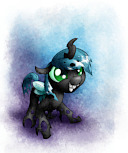

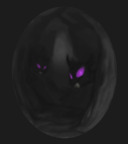
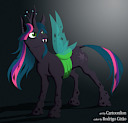


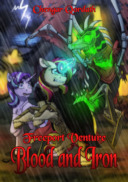

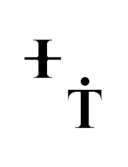



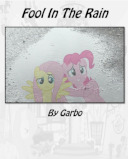


This story took me way too long to write, but now its done.
As much as school gets in the way of me writing, this is the second fiction I have written that was inspired by something I did in school (Market Ponies, if you have read it, is a spin-off on a book I read for school), so I guess I should be thankful for it.
I came up with this idea while I was studying the American Civil War, specifically slavery. I started daydreaming and wondered what it would be like if Ponies were enslaved. And so you got this. I also drew influence of of a book called Anthem that I read last year (Ayn Rand, anybody?), and it deals with a collectivist society, which is pretty similar to a hive. Also, the main character of my story and that story share some major similarities.
Also, if you didn't catch it in the description, the main character speaks using "we" in the place of "I" and "us" in the place of "me" to reflect the collective hive mind. (I also stole that from Anthem, btw)
Thanks for reading, and please tell me what you think of this in the comments!
Wow. Just... wow. These are the kind of fics that make me proud to be a Brony and proud to read fanfiction. I applaud you.
1506091
thanks. It's nice to hear that people like this one. I'm pretty proud of it myself.
As an old Civil War Between the States for Southern Independence buff -- growing up in that part of the world will do that to you -- I applaud. Loudly.
I also note that Variant, once persuaded, took a far stronger moral stand than did Lincoln, who at first was interested more in putting down the rebellion than in the ultimate fate of those whose emancipation he proclaimed.
1506768
You're welcome!
1507607
Oh, so you figured out the metaphor. Wasn't too hard to figure out, but still. It eludes to this in the story, but the only reason Queen Variant let them go free was because it was a way to make use of the dormant changelings, who would be more loyal workers. So actually, she doesn't really care. And as we see in her memoirs (ugh, I keep forgetting the main character is a she), the populace liked it for the same reason as the queen.
1508320
Which is a rare example of a group and its leaders having substantially the same interests. (It's rare today, anyway, what with the fragmentation of politics generally.)
Aw, this is fantastic. I loved it!
You really got a strong sense of the collective across and it worked well for the story told. Keep up the awesome work!
1509476
True. The thing I found funny during the unit was that the teaching was sometimes a little biased to the North. I guess that's a little forgivable since I live in Vermont, which is about as north as you can get without moving to Maine. But the teaching always tended to avoid the other reasons for fighting than slavery, issues that would shed the south in better light. They were wrong about slavery, but they had the right to be disappointed over their lack of political voice.
1511148
Thanks for noticing. I must admit that I stole a lot of ideas from the book I mentioned (Anthem), but a large part of making this story was trying to make the collective seem realistic, while still trying to get across that they had a democratic system of government, and trying to prove that they aren't really evil. Using "we" instead of "I" was a big part of that.
1514955
No harm in borrowing like that. The most recent original invention is the wheel.
And yeah, you nailed the government and race portrayal perfectly.
One of the best AU fics I have read in a very long time. It's amazing how much meaning you fit in such a short number of words.
**I changed the cover art because people might have mistaken this for a HiE fic because the original cover picture had a person on it. The barbed wire gets the point across just as well**
The story is solid but not emotionally engaging. Because it's composed mostly of formal speech I found it hard to immerse in the world you'd created. It's certainly a good "What If?" hook, but somehow the topic of enslavement, presented in such a detached manner, doesn't really trigger a strong response. I didn't identify with the main character well either, and the constant reference to herself as 'we' was quite jarring as I read it.
I also get a strong American slavery vibe from the work, so not being a US citizen with a background in the subject may have also worked against me. The ending reflections also seem discordant with the experiences of modern societies. The slaves did not rise up and overthrow their white overlords, they integrated into society and became equals. Whether or not the protagonist is mistaken in her assumptions simply because of her inability to accurately predict the consequences of emancipation, the fact that this image is the final one we're left with makes the entire process seem futile. Ponies will return, destroy changelings and reclaim land, and society reverts back to status quo. You could even see a cycle of each race locked in eternal rise and fall until one or both are destroyed completely.
Overall a solid work, but it failed to personally hook me.
1545843
Some of what you said is true, but I feel the need to argue some of it
Firstly, you got hooked up on the "we" thing, which I expected some people to do. That's perfectly fine, but in the end, a fully realistic portrayal of a hive mind required that they do not know individuality. As mind-jarring as it is, it is authentic.
Also, assuming that this is based on American slavery is assuming a lot. This story pulls a lot of influence from the slavery practiced in Africa by European nations, where the slaves did overthrow their oppressors. The fact that the changelings are just letting them go on their own with no assistance or compensation is parallel to how the European nations neglected the people who lived in those areas, and the point where the ponies overthrow the changelings is equivalent to when the African colonies overthrew the European empires that controlled them. I'd say that is a pretty accurate metaphor if I do say so myself.
That being said, there are references to the civil war, which is no surprise since I am American. For example, the queen is the metaphorical Abraham Lincoln, and the main character represents the voice of people who wanted the slaves freed for non-political reasons, while Lincoln's motives were largely political.
I hope this didn't come across as rude of offensive, for that is not my intent. Some of the things you said, such as my story's lack of ability to be enthralling, are completely accurate, and I respect those points of your opinion. I think we can agree to disagree on these standpoints in a mature manor.
/][\
I announce this the Led Zeppelin of Slice of Life fics.
2513628
No. Nothing compares to Led Zeppelin. I name all of my chapters after songs, and there's a reason I don't do Led Zeppelin songs. No story is worthy.
That being said, the idea behind this fic is something I'm very proud of. And after I'm done rewriting it, I'll have good writing quality as well.
1514946 I don't think they really try and bend around the issues and make it all about slavery up north. At least not where I go to school. But slavery was the primary issue that fueled the war. Debates over slavery caused secession. But it came down to things like the Union not recognizing Confederate independence and refusing to remove their military presence from the Southern States. That's what caused the shelling of Fort Sumter, and began the war.
2627904
The real reason for the war is simple: The south didn't like that they had a smaller amount of political influence than the north did at that time, with the Liberal Republicans controlling a vast majority of the government. This legitimate concern caused them to split off and form their own country. However, the southern position on Fort Sumter was overly aggressive, as if they were asking for war. That was an overreaction by a lot.
The north did go to war because of slavery, though. Although the government had other concerns greater than that, the citizens were more interested in the issue of slavery, and it was the main reason they were so enthusiastic about the war. But what people tend to forget was that the south didn't go to war to protect slavery, but to protect their political rights, one of which included owning slaves, despite how immoral the practice was. If only one side is fighting for something, and that side itself is fighting for other reasons as well, that doesn't make the war primarily about slavery.
2629560 Right. Slavery wasn't the reason the north fought the war. Fort Sumter was the reason we went to war. But slavery certainly played a part. With little influence from the south, they were set up to see slavery ended as abolitionist states became the majority power. The south's life blood was slave labor. Had their slaves been emancipated before war, the southern economy would have gone into a massive recession. We saw that happen during the Post-War Reconstruction era. The south didn't fight only because of their limited political power. They fought because they wanted to save their half of the economy. And when they tried to become their own nation, the Union refused to recognize them. True, there could have been peaceful resolution to the issue of northern military presence. But the south was mainly farmers and frontiersmen. They were tough, and no doubt always ready to fight.
2631126
The south did not secede in response to opposition of slavery. They did so upon Abraham Lincoln coming into office before even waiting to see if he would dare attempt to abolish slavery or if it would pass through congress, etc. So although one of the things they feared was slavery, the primary cause of secession was being upset at their lack of political influence, which prevented them from stopping slavery from being abolished. That's inarguable fact. It also stopped them from doing a number of other things, so limited political influence is essentially a umbrella term that takes into account more of the minute reasons for secession than just slavery alone, although it is mostly slavery to the slave holders, who held nearly all the power in the region.
Y'know, I was actually in charge of reviewing this for TECS before I left. S'a good story man, and I gave it a pretty good review in my opinion, but I'm not sure if I'm allowed to post it considering I'm not a critic anymore.
3130008
You could post it on this story as an independent reviewer to make me feel good about this.
Also, if you liked this, I'm going to rewrite it sometime in the not-to-distant future, with a lot more detail and stuff.
3130522 Yeah, alright. Let me get it...
Here ya go.
You'll pardon me if I didn't give it a perfect rating, or if the review seems off or something.
3130937
No, it's perfectly on base. It's consistent with the sorts of problems I was having in my writing back when I wrote this. I do think this story is rushed and that's the main reason I want to rewrite it. I wasted this idea pretty badly, in retrospect.
And Thanks for the review. I like it when people do these sorts of things for one of my stories. It's nice to know what I did wrong and what I did right, since I honestly miss both of them a lot of the time.
3135928 Well, I look forward to the rewrite.
Story Title: Emancipation
Author: Garbo802
Reviewed by: Plebeian
For many, the word “emancipation” evokes feelings of triumph, freedom, and new beginnings. In his piece, Garbo evokes exactly those emotions, using a combination of dialogue and interior monologue to develop a character that – to most readers – should feel very familiar. Emancipation is the story of a changeling in his moment of trial, who chooses to speak out for those considered below him.
The story is fairly and suitably literal until the very end, where it takes on a more reflective style and tone. “Emancipation” presents a few subsurface themes, and the author’s intended message is clear and easily-deciphered. Garbo’s alternate universe is well-established for the length of the piece, and his protagonist and conflicts are well-developed. In short, “Emancipation” is a piece worth considerable merit.
Score: 8.2/10
The Full Review (Some spoilers)